You Don't Have ADHD Feelings. You Just Have Feelings.
ordinary, unremarkable human emotions are enough
Going to Tumblr to do a little anthropology is a fraught business, I know. I’d prefer to ignore that world. The trouble is that elite culture for the past decade has to a remarkable degree been influenced by ideas, language, and tendencies that escaped from Tumblr. You can look at adult ADHD culture for a good example. You can hardly have avoided it, at this point, if you’re active online.
ADHD seems like quite a difficult condition to live with, and I think I have some idea of what it’s like, thanks to the cognitive effects of antipsychotic medication. I hope everyone who suffers from the disorder gets appropriate medical care and manages it effectively. But the culture is something different than the condition. ADHD discourse has become inescapable, and as it’s become more popular, the concept of neurodivergence has grown to include more and more of what’s really just ordinary human behavior. People don’t seem to want to think of ADHD as a medical issue like hypertension, one to be managed and then set aside, but as an all-encompassing, all-explaining source of the self. I find it all very odd.
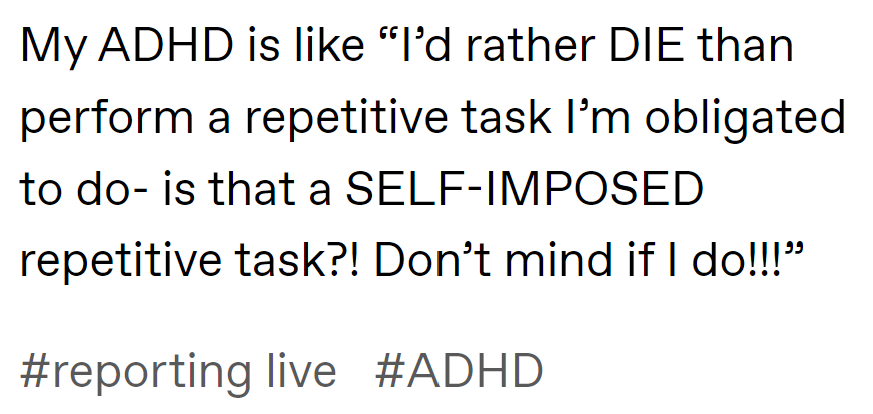
Twitter of course is guilty too.
As James Greig laid out earlier this year, all of this is… annoying. Worse, though people keep telling me that this sort of thing is just kids being dumb and they’ll grow out of it, minimal investigation reveals that there’s plenty of people in their 40s and above who have gotten on this train. But beyond annoyance, I think it’s another example of behaviors that are sold as self-protective that will ultimately cause harm. I don’t write this stuff to hold people up for mockery but to argue that these are fundamentally self-destructive mental habits. Some have compared adult ADHD discourse to astrology, and the comparison is apt: both ascribe all of a person’s self to totalizing systems that (they imagine) bring order and meaning to their lives; both are exercises in unreality that can never actually create meaning in the way that people crave. I have always found this instinct to ascribe the whole self to a single factor to be bizarre, personally. Who wants to decompose the self down to one overarching attribute that’s shared by many millions of people? I guess some people just feel such little sense of self from simply inhabiting their natural personalities that they look everywhere for external definition. In the long run, it will provide no comfort.
Those selves, those personalities, those individual collections of traits and attitudes and values and ideas that every human has - to live a long and sustainable emotional life, eventually, they must prove to be enough. I used the word “just” in the headline here, but maybe that’s counter to my point: your regular-ass, not-the-product-of-disability, not-a-reflection-of-identity-based-oppression feelings are all you need. They are enough. You don’t have to justify their importance by latching on to crowdsourced diagnoses that are now so vast that whoever wants to can be covered by their umbrella. Ordinary feelings are powerful, meaningful, and fulfilling. I’m afraid I have grim news for all of these people hoping to wring an entire personality out of their various cognitive disorders: you’re just like everybody else. We all are. That’s part of our endowment as human beings, our inherent and immutable ordinariness. “You’re not special” is supposed to be some terribly mean put down, but I find it quite comforting, myself; it frees me from the obligation to be anything more than I naturally am. What can it say about you, if you’re convinced that the innumerable traits and habits that make you you, that make us all human, are not enough to hang a person on?
In a simple descriptive sense, it’s not at all clear to me that ADHD or any other cognitive disorder actually creates unique emotions. I suspect instead that they provoke ordinary human emotions in some disproportionate way relative to others. (The “neurotypical,” if we absolutely must.) This claim seems unsatisfying, though, as people appear to be hung up on the undesirability of the ordinary. But ordinariness is not incompatible with depth, meaning, value, or purpose. On the contrary, I find not being special conducive to exactly those virtues. Once you stop spending so much time wanting to be special, you can pursue them for themselves, just as they are, just as you are, just as you actually are.








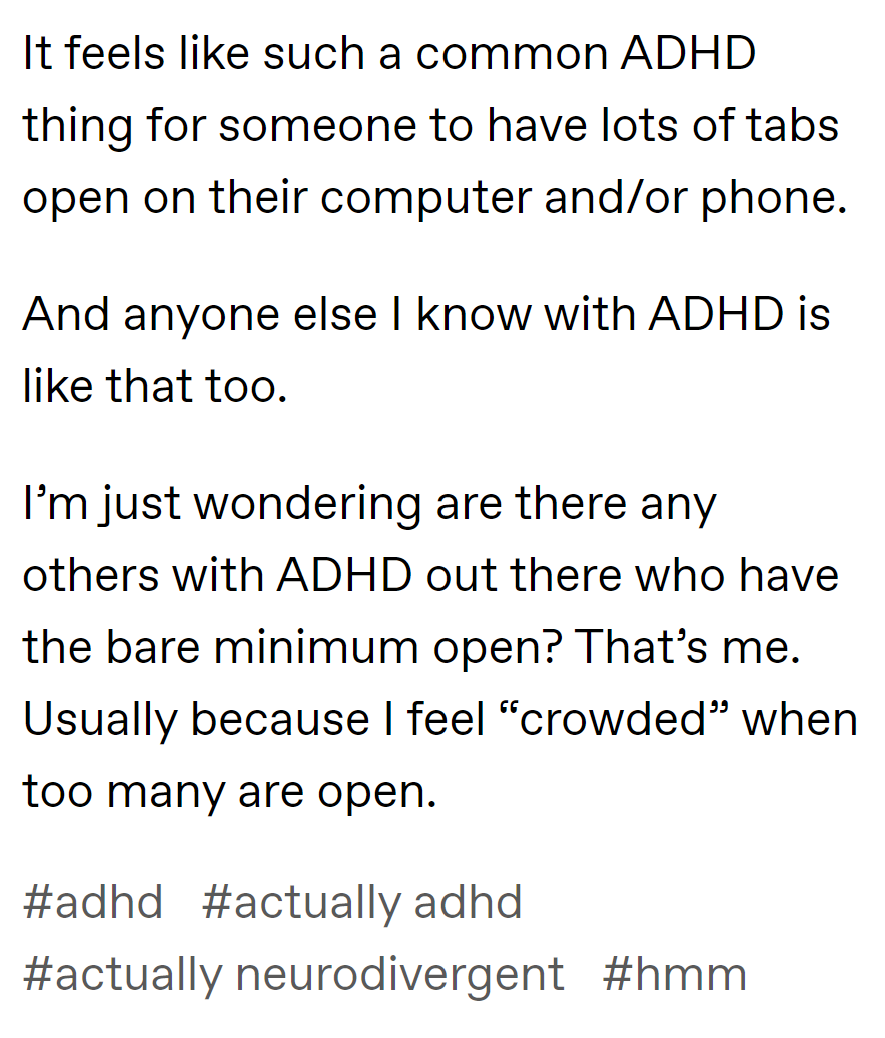
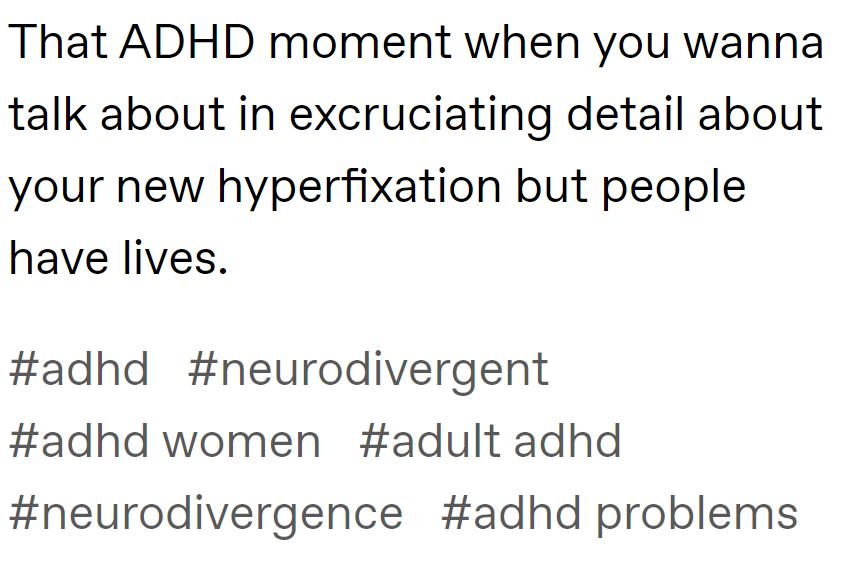
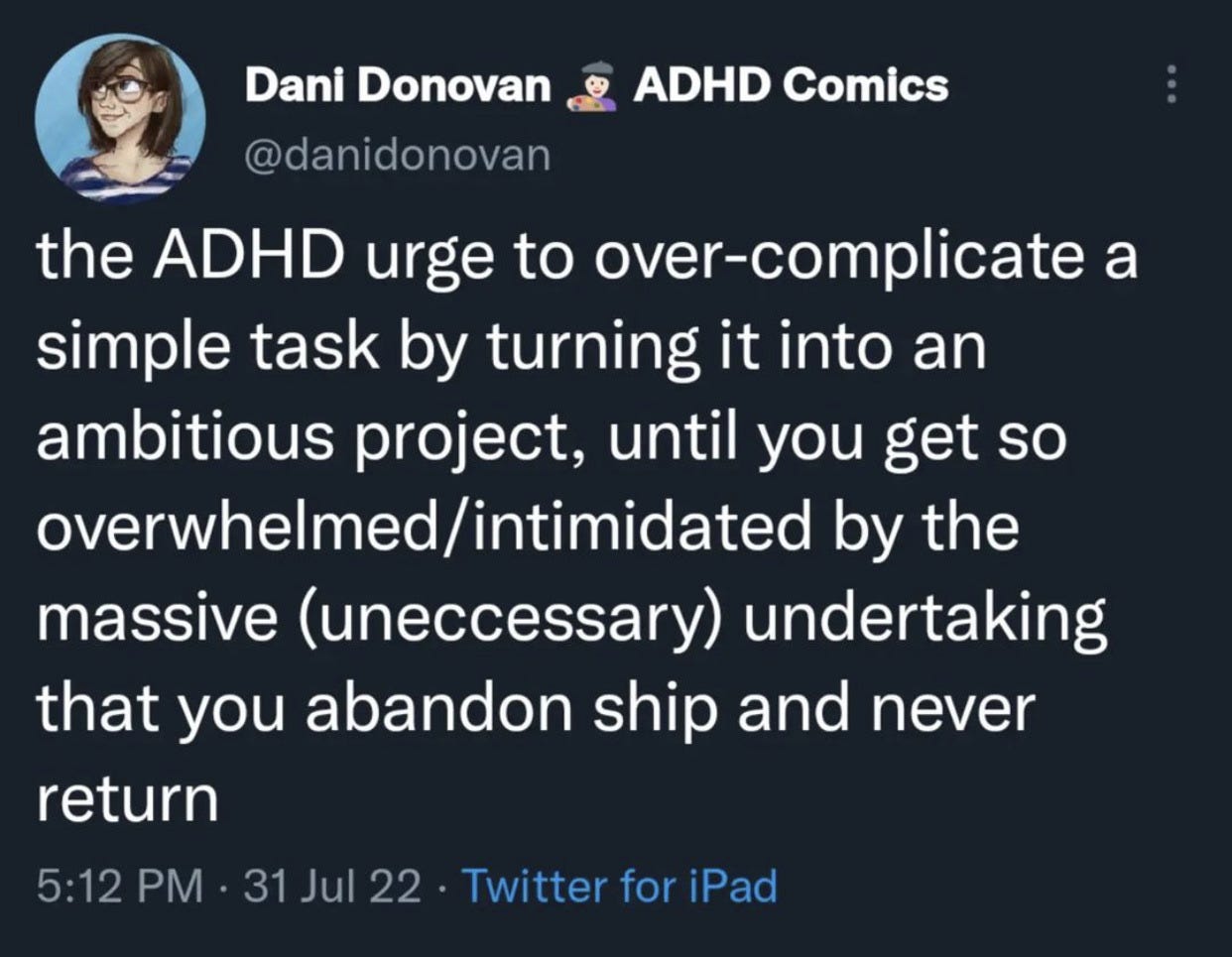

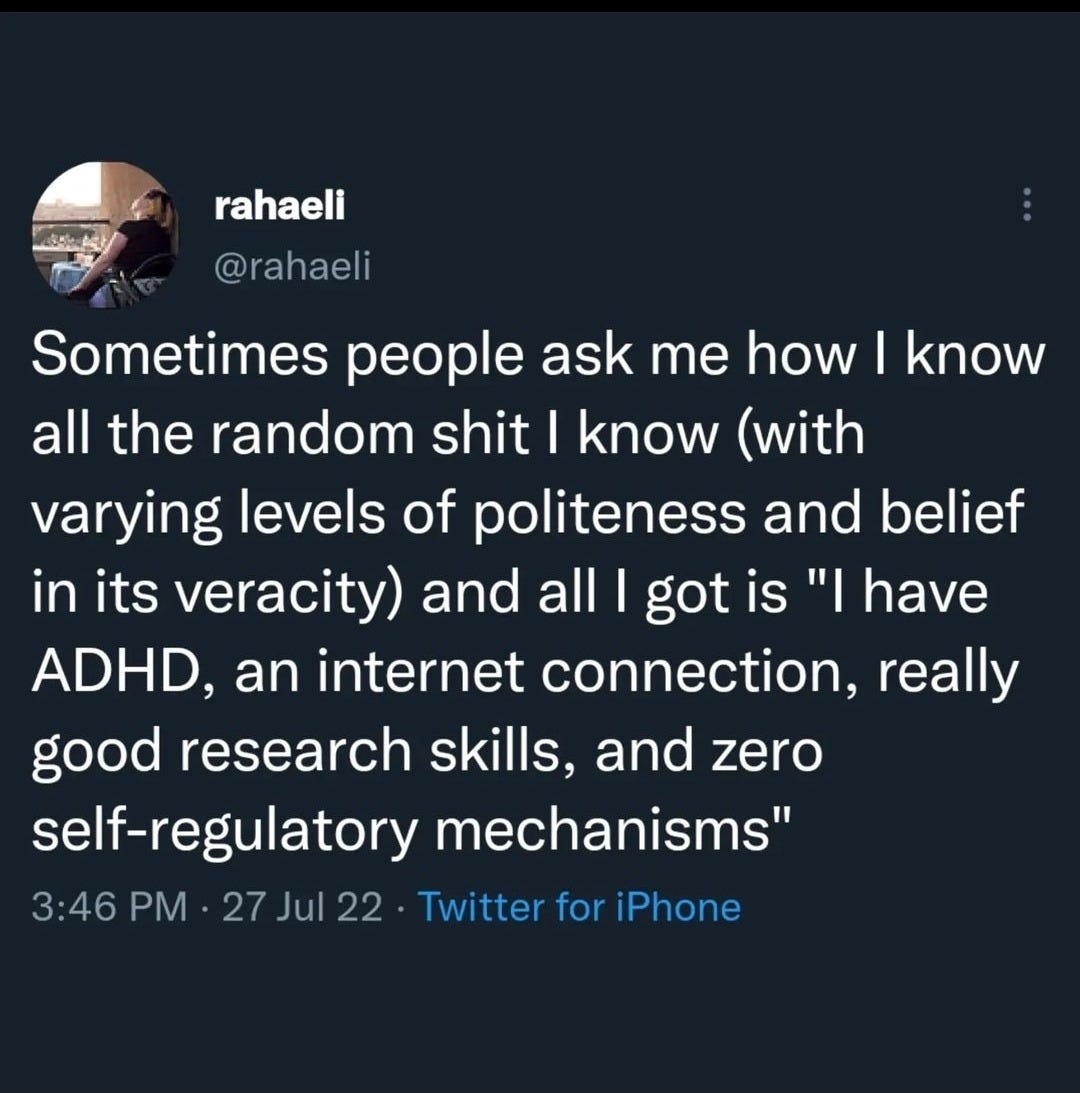

Deleting this. Thank you for the kind comments. ❤️
I agree with most of your analysis here, Freddie. I am a clinical psychology professor, and I thought for years that we needed to de-stigmatize mental illness; but now we have ended up with the opposite problem due to the role of social media. It's not healthy for people to define the core of their identities by their disorders! So I largely agree with you. But I did want to mention one critique. You have offered some good examples of people with ADHD over-interpreting their experiences through a diagnostic lens. But it is also true that ADHD is associated with problems with emotion regulation, and those emotion regulation problems are often a bigger source of difficulty in daily life than are the symptoms of inattention and impulsivity. This piece by Russ Barkley does a nice job outlining what we know about this link between ADHD and difficulties with emotion regulation: https://www.additudemag.com/desr-adhd-emotional-regulation/